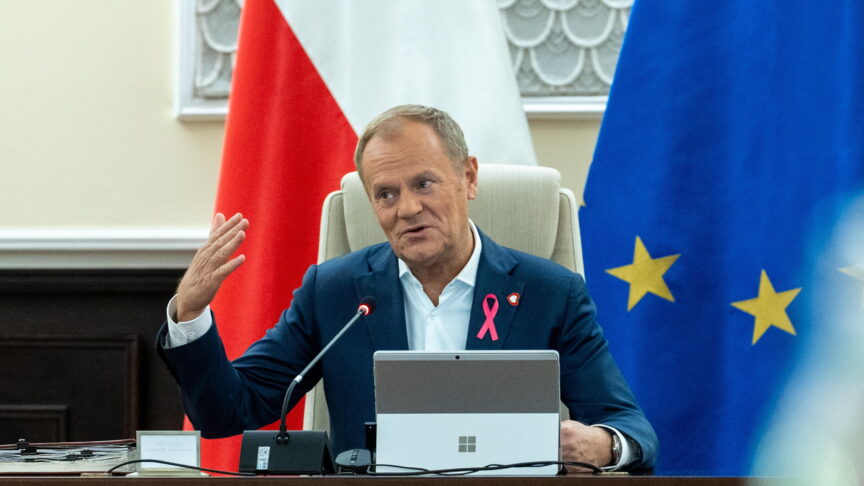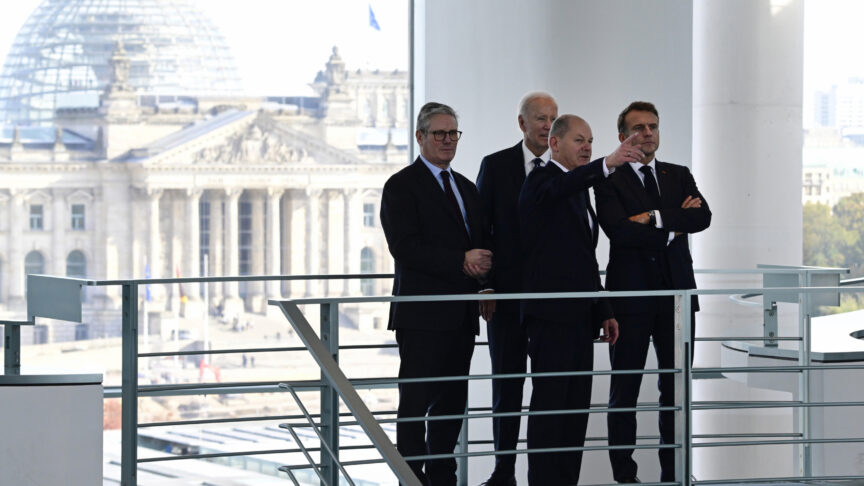Donald does Davos: The American President goes global
In this week’s episode, Trump takes his “America First” crusade into the very den of globalism: The World Economic Forum in Davos.
As far as Donald Trump is concerned, his primary job is not running the U.S. government. It is, rather, his starring role in the multi-media reality show that we’ll call The American President.
Much of the commentary on the Trump presidency makes the very understandable mistake of trying to understand Trump’s decisions as part of a strategy for governance. That type of analysis assumes that Trump has a policy outcome in mind, even if it is one with which the commentator disagrees with.
But the welter of contradictory policies and appointments, the staggering lack of information or consistency in Trump’s own statements, and the utter lack of attention to implementation tell another story. Trump is writing a script, with himself as the reality star, and the only thing that matters is the ratings.
To get those ratings, a show needs dramatic tension. More than that, every episode needs a short-arc – a story that begins, climaxes and resolves within the episode – that fits within the show’s long-arc – a continuing story which each episode advances a little bit.
Every decision Trump makes reflects an effort to create a short-arc that works for the immediate news cycle and to advance the long-arc narrative of The American President.
And so, in this week’s episode, Trump will take his “America First” crusade into the very den of globalism: The World Economic Forum in Davos, Switzerland.
The “Donald does Davos” episode fits neatly into this effort to create and develop dramatic tension for both the short- and long-arc. It will certainly make for great television.
Just by showing up, Trump creates the dramatic tension of the short-arc. Every headline notes that he is attending a gathering that is diametrically opposed to the anti-globalist theme that he campaigned on. The press is besides itself with speculation about whether Trump will use the opportunity to try to stick it to the global elites where they live (or at least vacation), or whether he will seek to win them over to his cause.
Even those leaders who speak out against him play their role by upping the dramatic tension and providing convenient villains or potential odd couple love interests. Indeed, French President Emmanuel Macron seems set to become a recurring character and has already signed up to star in a future episode entitled “State Dinner”.
Davos also helps the long-arc story of the Trump presidency by providing another opportunity to highlight Trump’s valiant crusade against the forces of globalism that are oppressing the American people. As the crème de la crème of global finance begs and scrapes to get into his presence, he will demonstrate the craven perfidy of the one-percent and his power over them.
The actual content of Trump’s trip matters little to the ratings. Either way, his supporters will cheer, and his opponents will laugh, cry, or throw things at the TV. But they will all be watching.
Reality Bites
But, in my humble view, the real world does exist. Trump is not just The American President; he is also the President of the United States, even if he doesn’t care about that bit of the job. Like me, much of the rest of the world is trapped in an old-fashioned reality-based paradigm in which what the President says and does matters for more than just TV ratings.
And so, U.S. policy must continue even as the reality show follows its own peculiar logic. However, without a President with an interest or an ideology with which to guide policy, the process of deciding (or failing to decide) on U.S. policy takes on a very different dynamic.
Behind the scenes of this reality show, there are plenty of people in Trump’s administration who are indeed interested in policy. They are divided on many issues and so make great efforts to get the President on their side. To do that, they need to constantly try to make their policy support either the short- or long-arc of The American President’s storyline.
The struggle to understand the real-world impact of the President’s trip to Davos needs to be understood in this context. It doesn’t matter why the President wants to go – that is just TV. What matters is whether the various factions can define the short-arc story of the Davos episode and use it to advance their agenda. That struggle began with the President’s decision to go and will continue up until he leaves, and this week’s episode ends.
One faction is represented by Gary Cohn, the President’s top economic advisor, who tends to take a more globalist approach. He has tried to define the short-arc of the Davos episode as the idea that President is putting forth a policy that puts “America First, but not alone.”
In this plot line, the President’s trip to Davos represents an effort to demonstrate that even as Trump pursues his long-arc crusade to get America a fair shake from the global system, he prefers to do so in cooperation with the type of international bankers and cosmopolitan European policymakers that populate Davos. It might appeal to the long-arc narrative as both a victory lap for the first year of his presidency and a magnanimous outreach from a position of strength to those who originally opposed him.
Opposed to that are the President’s more nationalist economic advisors, such as Wilbur Ross at the Commerce Department. That department took the opportunity of the President’s trip to Davos to impose punitive tariffs on solar panels and washing machines that may violate WTO rules and seem calculated to lead to a crisis with China.
That move sets up a more defiant short-arc in which the President uses the stage at Davos to attack the institution itself, much as he did at the United Nations in September. It allows the President to bravely stand on the rostrum and condemn those in front of him in the name of the long-oppressed American people, which sounds like great TV.
Which view will prevail? I don’t know; indeed it is possible that no one, including Trump, knows yet. Trump seems to select his short-arcs according to his dramatic feel in the moment, to include his sense of the room as he begins his speech. Reality TV does not have a strict script; one must improvise to maintain the dramatic tension.
In the end, the Trump administration’s policy will be determined by the faction in the administration that is best able to link its policy preferences to the narratives of the American President’s short- and long-arcs. It will not result from the policy strategies or preferences of a President who doesn’t have any. And it is entirely irrelevant to the show if, off-stage, the world is losing faith in America or the Chinese are seizing the mantle of global leadership.
The only facts that matter are the ratings.
The European Council on Foreign Relations does not take collective positions. ECFR publications only represent the views of their individual authors.


